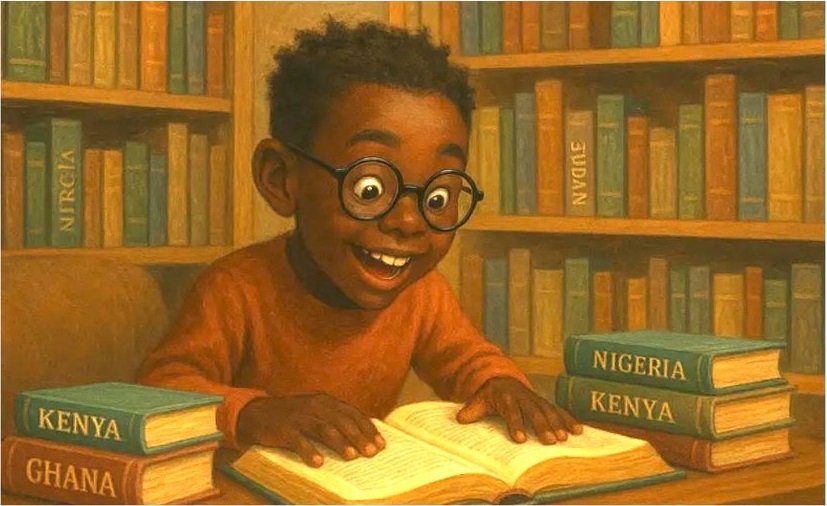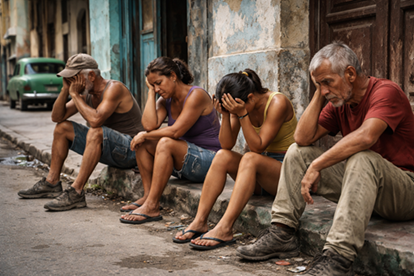
“There is no such thing as a child who hates to read; there are only children who have not found the right book.”
— Frank Serafini.
I am an avid reader. I do not think that was always the case — not if one counts the reading of comics in my adolescence or of novels written by Grace Livingston Hill. And, even in those respects, I am not so sure that I could have been described as a bookworm. Reading for academic purposes, as a student in secondary school in Kingston, Jamaica, was done more to pass exams and the same was true during my tenure at university in Washington, D.C., albeit with more mature focus in order to be adequately prepared for the world of work.
As a Christian, after having had a crisis of faith several years ago, I began reading books on Christian theology in earnest. That was and it still is my main interest, with a lot of books and reference material on my bookshelves that would be the envy of some pastors — including a plethora of Bible commentaries. But, in time, my reading widened to politics and to history, and more so to those which pertain to the American milieu as this is where I have been living for several decades now.
Shortly before the murder of George Floyd, the books which I had purchased and had read were considered to be “mainstream” conservative and Anglo-American in nature, containing ideas, often sanitized, which have been routinely crammed down the throats of everyone, especially those of people of colour. My reading of these increased in volume and in variety, along with books which harkened back to my tenure in university as a student of sociology. After the death of George Floyd my reading under those academic disciplines continued apace, but with my major thrust being more on African American history. I believe that I read more books in months than I did in the four years while I was in attendance at university in Washington, D.C.
I read books on American law and perused U.S. Government reports and publications in order to provide me with some context for the African American experience, which included reading annotated copies of the U.S. Constitution, of constitutional law with landmark constitutional cases, from the time of the nation’s founding. I took such readings quite seriously, perhaps more seriously than many people who were born in the United States, whether white or Black. But, I am beginning to think, from all that I have read so far, and from some of the nonsense that I have been witnessing in the public square, that, perhaps, I have been wasting my time.
Many Americans, especially white Americans, including those in Government, do not seem to take the study of their history nor of their laws seriously, garnished with an open-minded attitude and with genuine objectivity. And when they do interpret such things with a modicum of reason and of fairness they still end up, somehow, raising grave doubts as to their integrity and as to their willingness towards their implementation.
There are many books on African American history and on “mainstream” American history which are on my bookshelf waiting to be read; and they will be read, but not anytime soon. Since the debacle of the U.S. presidential election of last November, my patriotic ardour has cooled, somewhat. It is one thing to have one’s party of choice and their political platform rejected at the polls, but it is another thing to be in a country which prides itself on the principles of liberal democracy and on the tenets of law and order, now boasting to the world of a champion of American greatness who is a racist, a misogynist and a xenophobic convicted felon. No matter how one spins it, putting lipstick on a pig does not change the genus of that animal.
The Good Book makes reference to such people who support such madness and immorality as glorying in their shame. It also has an expression which is apropos for this darkened hour in history as of a dog having returned to its vomit. They are like those in the Book of Revelation, who boast of the destroyer of God’s people in the following manner, “Who is like unto the beast? who is able to make war with him?”
As an independent voter, one who has oft had issues with those of the so-called conservative bent, I have shocked myself during this time of absolute lunacy and of utter chaos, by asking, “Where is Senator John McCain when you need him?” And, in as much as that question was intended to reveal my patriotic exasperation and desperation at this time, I feel duty bound to lay much of the blame for the political mayhem which we are now experiencing within the American society under the auspices of the think tank, The Heritage Foundation, with their onerous and ominous Project 2025 blueprint for the dismantling of the U.S. Federal Government, largely at the feet of Republicans.
The Grand Old Party (GOP), which today, is a far cry different from the progressive policies of Abraham Lincoln, has long harboured much of the policies which are now being implemented under the Trump Administration, but, simply, were not able to find someone in the White House of their political ilk who was willing enough, brave enough, or stupid enough to do what the current president has, absolutely, no qualms about implementing. The current Administration is their own reflection in the mirror, but only as in the image of one on Crack-cocaine, who has fallen victim to what they had been trying to peddle to others for many decades.
And so, when some who have defected from the Grand Old Party in protest, and who still consider themselves as individuals who have “conservative values”, what do they mean by that? From whence this sudden bout of conscience? The same poison in MAGA still runs in their veins, although in MAGA it is more toxic or virulent. Therefore, they continue to be of great threat to the republic as they have ever been — MAGA or no MAGA. Their boast of Western philosophy and of Western civilization ring hollow, for I have not heard a Cato, I have not heard an Aristotle, I have not heard a Plato, I have not heard a Hobbes, I have not heard a Descartes, I have not heard a Rousseau, nor have I heard a Montesquieu coming out from among them.
I have seen no Pax Romana, which literally means “Roman peace”, and which refers to the time period from 27 B.C.E. to 180 C.E. in the Roman Empire. That 200-year period saw unprecedented peace and economic prosperity throughout the Empire, which spanned from England in the north to Morocco in the south and Iraq in the east. I have seen no Magna Carta, meaning the “Great Charter” in Latin, which was a document signed by King John of England in 1215. It established the principle that the king was subject to the law, not above it, and it guaranteed certain rights and liberties to the English nobility, particularly the barons. I have seen not the 95 thesis of Dr. Martin Luther, which detailed his opposition to what he saw as the abuse and corruption by Catholic clergy. None of these have I seen being played out on the social, on the political, on the economic, and on the religious landscape of America.
One might ask, with all that having been said, what is the focus of my reading now? Well, since the countries on the African continent have been referred to, disparagingly, as “sh*thole” countries, by the current U.S. president, I wanted to see if there was any truth to what he was saying. To be honest, I knew that his claims were not only rude and outrageous, but patently false. But any defence which I might have been able to muster on behalf of Africa should never be anecdotal, but based solely on historical, empirical evidence, and what a journey it has been to date. What an ancient, what a rich, what a varied, and what an intriguing past Africa has. It is all there, one only has to know where to look.
I did not want to begin by what I was taught in secondary school that my history as a Caribbean Black man began on the west coast of Africa — made possible by the instrumentality of slave ships which traversed the Middle Passage that were owned and operated by European governments, and by private individuals, with the blessings of the Papacy and of the Church of England. I did not want to begin with the plantation and the whip, spawns of imperialism and colonialism. I wanted to learn of Africa before European countries were ever in vogue as world powers, and what a journey it has been. It has not only provided me with insight into the madness and the greed of our times, but also about who and where I am from, with things to cherish and cheer about, and, with things to eschew and excoriate.
As with any family, you own up to the good and the bad. You do not bury your head in the sand in the face of hard truths, as white Americans are wont to do with their racist past. A malignant tumour does not cease to be one because one pretends otherwise. I have lost some degree of hope in the basic humanity of my fellow human beings here in America, but as Frank Serafini, Associate Professor of Children’s Literature and Literacy Education at the University of Nevada, stated in the quotation at the beginning of this opinion piece, I am as one of those children that he talked about needing to be inspired by the right book. Hence my foray into the history of pre-European imperialist Africa.
Again, I find some encouragement in the words, of the late Ghanaian diplomat — who was the seventh Secretary General of the United Nations, who was a Nobel Peace Prize winner, and who was also from one of the very “sh*thole” countries that the current U.S. president referred to — Mr. Kofi Annan: “Literacy is a bridge from misery to hope.”
And so, my hope continues to burn as an ember on an ash heap of despair, which I fan perseveringly by reading widely, to inspire and to guide me so as to help others, in turn, to navigate these uncharted and tumultuous waters of our time.



